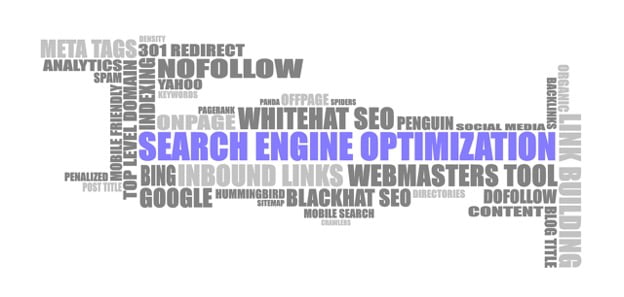
Good SEO is integral to set you apart from the millions of other organisations you are competing with online on a day-to-day basis. But companies generally don’t have a clear idea of what makes good SEO. Optimizing isn’t just loading it with keywords and producing long-drawn and repetitive content. It’s a variety of time-consuming, strategy tasks that require smarts and planning – not a set of shortcuts and tricks.
Simply put, the ranking of your content will depend on its quality and how well it answers users’ specific queries. Search engine crawlers judge content by its calibre. Appropriate search words are a subsidiary indication, not an entire criterion, to the search engine that your content meets the mark.
But focussing on keywords is just one common misconception that can lead to SEO mishaps, harming your brand’s progress. We bring you the most common slip-ups organizations make that can and should be easily avoided to drive up your search ranking.
1) Picking Keywords That Are A Bit Off
Sure, you may define your product or service with certain terms, words or phrases. These may be familiar to you and second nature. Over time, this can blind you into thinking everyone refers to your product by your catch terms. For SEO keywords to be intuitive, use words and phrases from your target customers’ points of view. Also, research the long-tail keywords you can include improving matching your content with users’ relevant searches. Tools that help find the right keywords and trending searches are Google Trends, Google AdWords keyword planner and Moz Keyword Explorer.
2) Indulging In Keyword Stuffing
As touched on earlier in this post, overloading your copy with keywords is counterintuitive as it makes for poor content. Stuffing your text with keywords on irrelevant topics is another big no-no when it comes to SEO and search engine crawlers may flag it as spam, negating your efforts at optimization altogether. Instead of writing a load of ameatuer-reading content filled with repetition, focus on quality information that is useful to your visitors. That way, those who do visit your website will be impressed and not put off by spammy material.
3) Duplicating Content
Duplicating content or plagiarism is a surefire way to harm your rankings or dilute the effect of your SEO efforts at the least. If your content has purposefully been copied your website could face serious ramifications from search engine services like Google – at worst you could be removed from Google’s index and will not show up in any of those search results.
4) Not Adding Alt Tags
Alt Tags help search engines recognize your images. Think of it as adding keywords to your pictures, this text can provide an added boost to your optimization and it takes hardly any time to do. Make sure you give all your images Alt Tags to help your content rank better.
5) Ignoring Meta Description Length and Not Adding Tags and Meta
Don’t forget to fill in your meta description and make sure that its length is no more than 150 words. A description that is too long can be cut short in search results and if the first part of it is just a generic intro it serves no real purpose lure readers to chick on your link. Keeping your meta descriptions short and crisp is essential – keep all the important information in it that could not be placed in your page title for lack of space. You’ve got your keywords included into quality content – but you aren’t done yet. Adding title tags and meta descriptions are essential steps to get you that SEO advantage as these are scanned by search engines and can have an impact on your ranking. Image tags are also important as they communicate your visual content to the search bot, which contributes to the indexing of your page.
6) Thoughtless External And Internal Linking
Linking both externally and internally can help improve your rankings but thoughtlessly doing is a waste of your time and effort. External linking should be from respected websites and these links should be relevant to the content that is on your page. Pay close attention to the anchor text. Avoid run-of-the-mill phrases such as “click here” which won’t be recognized by the search engine crawler. Instead, use words that describe what the link is actually about as your anchor text. Similarly, internal links need to be relevant. Too many internal links with vague or no correlation can adversely affect the ranking of your page.
7) Not Tracking Your Efforts
Keep a track of how your strategy and changes are affecting your ranking and website visits. Tracking your efforts is imperative to know what is working and what you need to work on. Take advantage of Google Analytics and Google Webmaster Tools to intermittently review how your tactics are benefiting from harming your popularity on the web.
In today’s digital world, SEO is something you cannot ignore when looking to create awareness for your brand and offerings. Whether business to business or business to customer, a good website that ranks high on search engines gives your clients the right impression and traction in the highly-competitive digital space. Knowing the common SEO mistakes will save you a whole load of time, money, and effort so you can skip straight through to strategic and respected practices that are most likely to increase traffic to your website.
See Also: Everything that you need to know about Search Engine Marketing
See Also: 20 key terms an entrepreneur should know about Search Engine Marketing
